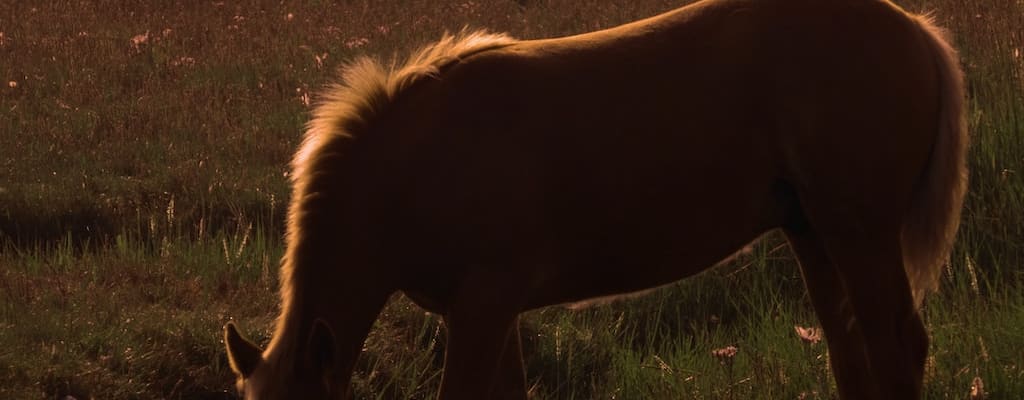bad trot: Idiom Meaning and Origin
What does ‘bad trot’ mean?
The idiom bad trot refers to a period of unfortunate events or a streak of bad luck. It implies a continuous sequence of negative occurrences and is often used to describe a string of setbacks or unfortunate circumstances.

Idiom Explorer
The idiom "in the wrong place at the wrong time" means being in a situation where something bad happens due to unfortunate timing or circumstances.
The idiom "in the toilet" means that something is in a troubled or bad state, typically referring to a situation that has gone wrong or is failing. It is a casual expression that implies a negative outcome or result.
The idiom "in a pig's patoot" means in a difficult or unpleasant situation. It is often used to express frustration or annoyance. The exact origin of this phrase is unclear, but it likely refers to the idea of being in an undesirable or uncomfortable position, similar to being in a pig's hindquarters.
The idiom "hit the buffers" means to reach a point of failure or complete downfall, often used to describe a sudden end or setback in one's progress or plans.
The idiom "hit a snag" means encountering an unexpected problem or obstacle that hinders progress or causes a delay. It is often used to describe a situation where a plan or process does not go as smoothly as expected.
The idiom "go wrong" means that something does not go as planned or expected, and results in a failure or a mistake.
The idiom "go to the dogs" means to deteriorate or decline, often used to describe a situation or place becoming worse in quality or standards.
The idiom "go the way of" means to follow the same path or fate as something or someone, usually implying that the outcome will not be favorable or will result in obsolescence or extinction.
The idiom "good run" means a period of success or achievement in a particular activity or endeavor.
The idiom "go downhill" means that something is deteriorating or becoming worse over time. It can refer to a decline in quality, performance, or overall condition.
Unraveling the Enigma
The idiom "bad trot" is a colloquial expression commonly used in American English. It is an idiomatic expression with its roots in horse racing, as evident from the word "trot." This term refers to a specific gait of a horse and is used to convey a negative or unfortunate situation.
One interesting aspect of the idiom "bad trot" is that it often describes a prolonged period of bad luck or misfortune. It is typically used when there is a series of negative events occurring one after another. The idiom portrays the idea that an individual or entity is going through a particularly challenging or difficult time.
When someone mentions having a "bad trot," they are essentially expressing that they are down on their luck. This idiom is related to the phrase "down on one's luck," which refers to a period of time where someone is experiencing a string of unfortunate circumstances or is facing financial or personal difficulties. Both idioms convey a sense of continuous misfortune and resonate with individuals who are in a challenging situation.
Similarly, the idiom "bad trot" can also be related to the phrase "good run." A "good run" refers to a period of consistent success or luck. While the idiom "bad trot" signifies a streak of misfortune, a "good run" is the opposite, symbolizing a period of positive outcomes or fortunate events. These idioms serve as contrasts, highlighting the ebb and flow of luck in one's life.
No one is immune to having a "bad trot" or experiencing a "good run." Everyone goes through ups and downs, and these idioms provide a relatable way to express those times.
Another idiom that can be related to the idiom "bad trot" is "bad hair day." It is often used to describe a day when everything seems to go wrong or nothing turns out as planned. This phrase is a metaphorical expression of having a rough or unlucky day, much like having a "bad trot." Both idioms convey the idea of temporarily experiencing negative outcomes or events in various aspects of life.
In addition to these idioms, the phrase "hit a snag" is also related to the idiom "bad trot." When someone "hits a snag," it means they encounter an unexpected problem or obstacle that hinders their progress or causes difficulty. This phrase aligns with the idea of a "bad trot" because it represents a stumbling block or setback in someone's journey, adding to their streak of misfortune or bad luck.
Finally, the phrase "in the toilet" can be associated with the idiom "bad trot." When something is "in the toilet," it means it is in a state of decline or failure. This phrase encompasses the idea of a downward spiral or a series of unfortunate events, similar to the concept conveyed by the idiom "bad trot." Both idioms highlight situations or circumstances that are significantly negative or unfavorable.
The idiom "bad trot" is a colloquial expression originating from horse racing. It describes a prolonged period of bad luck or misfortune, typically occurring one after another. This idiom is primarily used in American English and is more frequently spoken than written. It conveys frustration or sympathy for someone going through a tough time. Additionally, several related idioms, such as "down on one's luck," "good run," "bad hair day," "hit a snag," and "in the toilet," capture different aspects of adversity or the ups and downs of life. These idioms enrich the American English lexicon, giving individuals a relatable and expressive way to discuss difficult experiences or streaks of misfortune.
Example usage
Examples of how the idiom *bad trot* can be used in a sentence:
- After losing his job and breaking up with his girlfriend, he's been on a bad trot lately.
- The team has been on a bad trot, losing their last five games in a row.
- Ever since her car broke down, she's been on a bad trot with constant transportation issues.
More "Equine" idioms
We missed the mark - nothing found.



